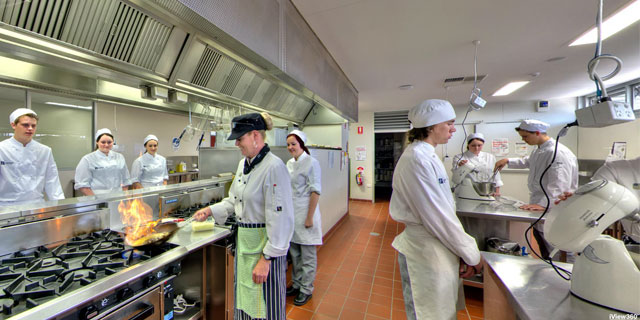Effective management of Millennial employees in the hospitality industry is becoming increasingly important as they continue to grow as a percentage of the workforce. The task for managers is to motivate Millennials as well as reshape policies and processes to ensure they get the most out of this generation of workers.
Millennials are defined as being those born between 1976 and 2001. They have grown up in a world of great technological change. They are often negatively stereotyped as being entitled and nassistic. On the flipside they are seen as optimistic, energetic and tech-savvy.
Whatever the stereotypes, Millennials are entering the workplace with a set of different set of expectations to previous generations with implications for the hospitality industry.
Millennials are defined as being those born between 1976 and 2001. They have grown up in a world of great technological change. They are often negatively stereotyped as being entitled and nassistic. On the flipside they are seen as optimistic, energetic and tech-savvy.
Whatever the stereotypes, Millennials are entering the workplace with a set of different set of expectations to previous generations with implications for the hospitality industry.
Flexibility
One of the most important factors for Millennials when it comes to employment is work-life balance and the desire for flexibility. The hospitality industry is well known for its flexible work options, with employees able to work early mornings, during the day or late at night. Managers should use this feature of the industry as a selling point in their recruiting efforts.
Context
Millennials want to feel as though they are contributing to the greater good. During the initial hiring stage ensure you talk about the bigger picture and how you see them as part of that. Outline the business vision and its values. Be clear in setting expectations and the needs of the business.
Job Hopping
Hospitality managers need to acknowledge that job-hopping is a regular occurrence for Millennials and that they need to have plans in place to keep them engaged.
During the recruitment process be upfront and set expectations around advancement within the business as well as your businesses culture.
Once hired, you improve your chances of retaining Millennial employees by encouraging their input. Seek their thoughts on ways to improve processes and grow your business. Millennials come into a business with new ideas and ways of seeing things. Harness their different perspectives and leverage their insights.
Not all employees will stay. It is therefore prudent in certain circumstances to have confidentiality agreements in place in the event that they decide to work for the competition.
If you keep take the input of Millennials seriously and keep them engaged then you maximise the chance that you will keep them for the longer term.
During the recruitment process be upfront and set expectations around advancement within the business as well as your businesses culture.
Once hired, you improve your chances of retaining Millennial employees by encouraging their input. Seek their thoughts on ways to improve processes and grow your business. Millennials come into a business with new ideas and ways of seeing things. Harness their different perspectives and leverage their insights.
Not all employees will stay. It is therefore prudent in certain circumstances to have confidentiality agreements in place in the event that they decide to work for the competition.
If you keep take the input of Millennials seriously and keep them engaged then you maximise the chance that you will keep them for the longer term.
Education and Training
One strategy to keep Millennials engaged is through workplace education and training. This can be in the form of formal courses, on the job training or peer mentoring. You should engage Millennials in your business with stimulating and challenging projects. Millennials are lifelong learners and will cherish the chance to up-skill and take on responsibility.
Job Security
Despite their propensity to change jobs at regular intervals, Millennials still have expectations of job security. Managers should ensure that they are clear at the outset that any employee agreement is based on performance.
Collaboration
Millennials grew up participating in teams and many enjoy working as part of a group. Set up forums that allow Millennials to share their ideas for the business with colleagues. Trust them with the responsibility to go and implement any innovative ideas they might come up with.
Social Media Policies
Millennials have grown up in an era of social media and are frequent user of social media platforms. It is therefore important for organisations to implement clear and specific policies related to its use. Any attempt by an organisation to restrict what employees can write on social media could be seen to restrict the right to freedom of speech.
Feedback
Millennials are comfortable with being assessed and value regular feedback from their managers. Millennials are often ambitious and want to be promoted quickly. Be upfront about how performance will be measure and ensure that you don’t make promises that will be hard to keep down the track. Ensure you have regular discussions about career goals and are providing regular feedback on their performance. Provide generous praise for a job well done and constructively outline any areas for improvement.
The Way Forward
As Millennials become an increasing part of the workplace the challenge for hospitality business owners will be to adjust their approach to accommodate a new generation of workers who are creative, innovative, energetic, optimistic and tech savvy but at the same time have their own set of demands. Hospitality owners that are able to provide a workplace environment conducive to how Millennials like to work stand to unlock new ways to grow their business.







 RSS Feed
RSS Feed